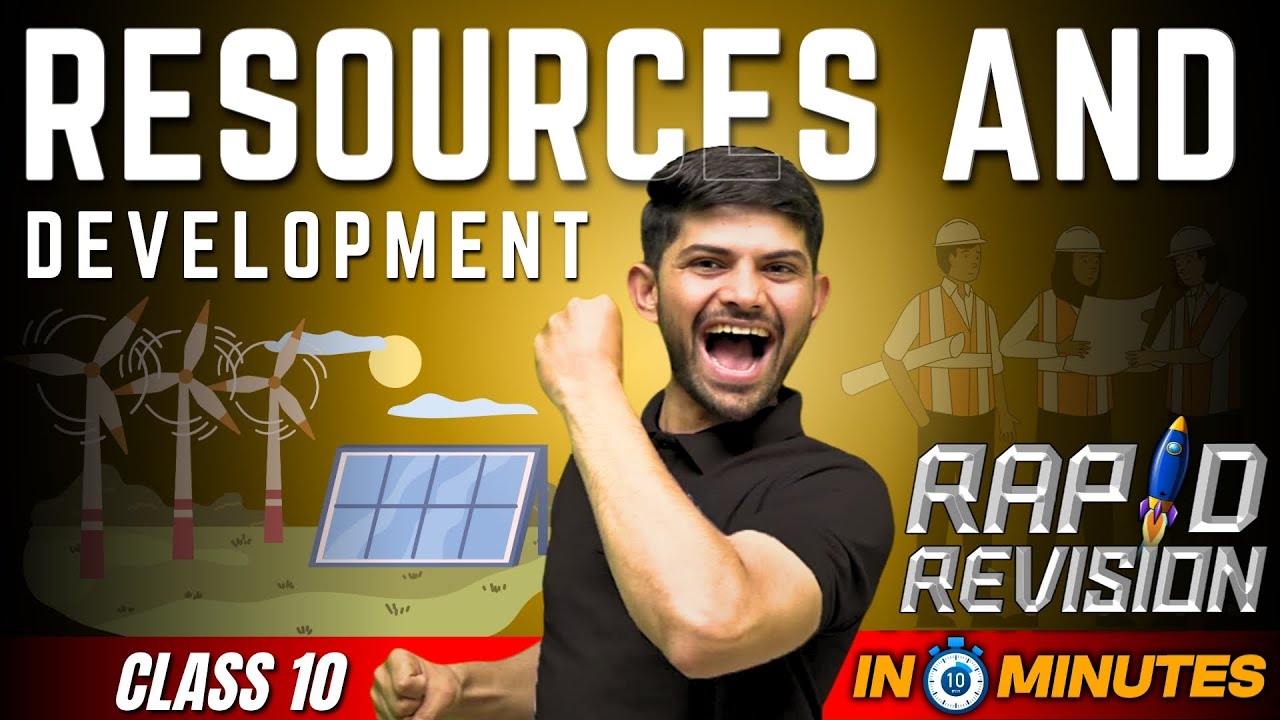Konservasi SDA
Summary
TLDRThe video lecture discusses the significance of natural resource conservation within the framework of resource management. It defines conservation as the sustainable use of resources, ensuring their availability for future generations while maintaining environmental quality. The speaker emphasizes the need for wise resource utilization, outlines the principles and goals of conservation, and highlights the challenges faced, particularly in developing countries. The lecture includes practical examples of soil conservation methods, illustrating their importance in mitigating erosion and enhancing sustainability, ultimately contributing to environmental protection and improved living standards.
Takeaways
- 🌱 Conservation of natural resources is defined as the wise utilization and sustainable management to ensure ongoing availability while maintaining and improving their quality.
- 🌍 Conservation plays a critical role in economic development as it serves as an input for economic production and as a means to assimilate waste.
- ⚖️ Sustainable resource management should not exceed the regeneration rate of the resources, ensuring environmental stability.
- ♻️ Effective waste management is crucial to keep the environmental impact of waste below its assimilative capacity.
- 🔒 Key conservation objectives include protecting ecological systems, preserving genetic diversity, and maintaining species for future use.
- 💧 Conservation methods can be categorized into agronomic, mechanical, and chemical practices to prevent soil erosion and improve land productivity.
- 🌾 Agronomic practices include techniques such as cover cropping and crop rotation to reduce soil degradation and enhance soil health.
- 🪨 Mechanical conservation involves physical alterations to the land, like terracing, to control water runoff and erosion effectively.
- 🌿 Chemical conservation focuses on soil conditioning to improve soil structure, making it more resistant to erosion and enhancing plant growth.
- 🧩 Successful conservation requires an integrated management approach to balance various interests and ensure positive environmental externalities.
Q & A
What is the primary definition of conservation as discussed in the lecture?
-Conservation is defined as the wise use of resources that ensures sustainability and maintains the quality and value of natural resources for future generations.
Why is conservation important in economic development?
-Conservation serves as an input for production, aids in waste management, and provides environmental comfort, which are crucial for sustainable economic growth.
What are the three main goals of conservation mentioned in the lecture?
-The three main goals are the protection of ecosystems, preservation of biodiversity, and sustainable use of species.
What principles should guide the use of natural resources?
-Natural resources should be used wisely without exceeding their regeneration capacity, and waste emissions should be managed to stay within the environment's capacity to assimilate them.
List some benefits of natural resource conservation.
-Benefits include maintaining environmental quality, preventing disasters, protecting species from extinction, contributing to knowledge for discovering new resources, and enhancing tourism.
What are some challenges faced in natural resource conservation?
-Challenges include population growth leading to increased demand for resources, and the transition from traditional to urban economies in developing nations, which can create imbalances and inefficiencies.
What methods are used for soil conservation as discussed in the lecture?
-Methods include agronomic practices (like crop rotation), mechanical methods (such as building physical structures to slow runoff), and chemical methods (using soil conditioners to improve stability).
How does conservation contribute to tourism?
-Conservation enhances tourism by promoting the sustainable use of natural resources, which provides comfort and enjoyment for visitors while protecting the environment.
What is the role of biodiversity in conservation efforts?
-Biodiversity is crucial for maintaining genetic diversity, which is necessary for sustainable development and the continuity of ecological processes.
What is the significance of integrated management in conservation?
-Integrated management ensures that resource management aligns with various interests, minimizing negative externalities and promoting efficient resource use.
Outlines

Esta sección está disponible solo para usuarios con suscripción. Por favor, mejora tu plan para acceder a esta parte.
Mejorar ahoraMindmap

Esta sección está disponible solo para usuarios con suscripción. Por favor, mejora tu plan para acceder a esta parte.
Mejorar ahoraKeywords

Esta sección está disponible solo para usuarios con suscripción. Por favor, mejora tu plan para acceder a esta parte.
Mejorar ahoraHighlights

Esta sección está disponible solo para usuarios con suscripción. Por favor, mejora tu plan para acceder a esta parte.
Mejorar ahoraTranscripts

Esta sección está disponible solo para usuarios con suscripción. Por favor, mejora tu plan para acceder a esta parte.
Mejorar ahoraVer Más Videos Relacionados

Foraging Societies and Environmental History

ILMB Pertemuan 6

Biodiversity Act, 2002 UGC NET LAW

Tugas Kelompok dari Mata Kuliah Ekonomi Sumberdaya Alam dan Lingkungam ( kelompok 1)

Resources and Development | 10 Minutes Rapid Revision | Class 10 SST

PEMANFAATAN SUMBER DAYA ALAM - Materi IPS Kelas 8 Kurikulum Merdeka
5.0 / 5 (0 votes)
